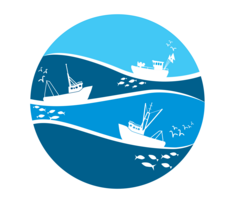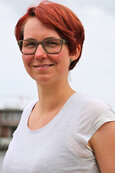The Baltic Sea is an interconnected system of ecological (e.g. fish stocks, environmental conditions) and social factors (social composition, fisheries, nature protection). This social- ecological system is increasingly subject to change - from climate change to social change and political change, this also has an impact on the use and users of marine resources. Our work investigates the social phenomena around the Baltic Sea, its changes and how these relate to ecological changes. One of our tasks is to scrutinize existing management approaches, develop alternative approaches and assess their consequences in order to derive policy recommendations.
We work with social science methods and build on co-production of knowledge between science, society and politics to foster a sustainability transformation. We develop future scenarios for the use of the Baltic Sea, and use the leverage points concept to find places to intervene to foster transformative change (see figure).
Leverage points are places in a system where small changes can have a big impact. In sustainability research, they help us to recognize where we need to start in order to make a real change - for example in our dealings with nature, the economy or politics. Some leverage points are easy to change, but only have a small impact. Others go deeper, such as values, mindsets or power relations - they are more difficult to change but can transform entire systems. Those who understand and use these leverage points can effectively promote sustainability and support the transition to fairer, more livable societies.
- Willem Malherbe (Postdoc), Institut de recherche pour le développement und Universität Montpellier, financed by Future Earth Pathways "Identifying leverage points to foster pathways towards sustainable coasts“
- DFG networking grant, Leverage Points for climate action, lead: Maraja Riechers and Jan Petzold, , https://leverage-points.com/
- Pathways Projects - Future Earth Pathways; lead: Maraja Riechers und Alexandre Ganachaud, Institut de recherche pour le développement (IRD) Nouméa, New Caledonia, France linked to Pacific Ocean Pathways in support of sustainable development, https://pacpath.org/
- Understanding Marine Heatwave threats for French Pacific Overseas Territories; co-designing decision-making tools and solutions for adaptation (MaHeWa, mahewa.fr/), lead: Sophie Cravatte and Catherine Sabinot
- PECS (Programme on Ecosystem Change and Society) working group “Ocean equity for sustainable futures”, lead Maraja Riechers and Sebastian Villasante, https://pecs-science.org/ocean-equity-for-sustainable-futures/

![[Translate to English:] [Translate to English:]](/media/_processed_/d/7/csm_Startseite-OF_03_c0dfd6e750.png)
![[Translate to English:] [Translate to English:]](/media/_processed_/a/3/csm_20181116-151457-Stella-Jerome-Fischfalle-Warnem%C3%BCnde-Dorsche-im-Netzk%C3%A4fig-5691_heller_3050c72fa2.png)











